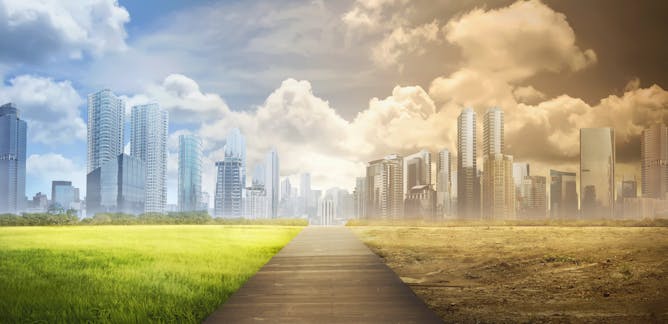|
Happy New Year! It’s hard to believe it’s 2022. In some ways, time feels stuck in March 2020 at the onset of the pandemic. But looking back at the past year and forward to the New Year, we can see how much has changed.
Here at The Conversation Canada and La Conversation Canada, our articles were viewed more than 43 million times in 2021. (And those were just the views we were able to count online — many more people read our articles that are reprinted in newspapers.) Readers like you turned to us for trusted information from academic experts, especially about COVID-19 and vaccines.
We expanded into more audio and video content, including 12 episodes of our podcast about race: Don’t Call Me Resilient, which was downloaded and streamed more than 53,000 times. It was named an Apple Podcasts Editors’ Pick of 2021. We added narrations to stories and you can now listen to over 160 articles. Our editors and authors appeared on camera in livestreams, on Instagram, and even on TikTok.
Authors also appeared as experts on TV and radio across Canada. Their articles in The Conversation were republished by hundreds of media outlets, from newspapers like the Globe and Mail and the Washington Post, to websites like The Tyee and The Narwhal.
Thank you for being a loyal reader and newsletter subscriber. You can get even more from The Conversation by following our podcast and social media accounts, such as Twitter, Facebook and
LinkedIn. E-mail our editors any time with your story ideas or thoughts: ca-editorial@theconversation.com.
Now let’s ring in the New Year together with our Top 10 most popular stories of 2021. And here's to a (hopefully) better year ahead!
|
Year in Review: Most Popular Stories of 2021
|

Vrinda Narain, McGill University
Emboldened by success in Afghanistan, the Taliban is now ordering religious leaders to provide them with lists of girls over the age of 15 to enter into ‘marriages’ to Taliban fighters.
| |

Dawn ME Bowdish, McMaster University; Ishac Nazy, McMaster University
Answers to key questions about rare blood clots linked to AstraZeneca’s COVID-19 vaccine, including risks, symptoms and whether people who have had one AstraZeneca shot should have a second.
|

Lisa Cohen, McGill University; Sandra E. Spataro, Northern Kentucky University
So you snagged your dream job. And it quickly became the stuff of nightmares, filled with mundane tasks and drudgery. What can employees and employers do?
| |

Alexander Wong, University of Saskatchewan
Hundreds of thousands of Canadians got a shot of AstraZeneca’s COVID-19 vaccine for their first dose. They now have a choice for their second dose: AstraZeneca again, or Pfizer or Moderna mRNA vaccine?
|

James Sikkema, McMaster University
Different levels of governments have ordered physical distancing measures of varying degrees, but are they truly lawful?
| |

Thomas Klassen, York University, Canada
After Joe Biden assumes the presidency next week, Donald Trump may face criminal and civil charges at both the federal and state levels for actions before and during his tenure as president.
|

Andrew Roddick, McMaster University; Anna Guengerich, Eckerd College
Polished metal monoliths recently appeared in remote locations around the world. In some ways, they’re not unusual — standing stones have been important in many historical cultures of the world.
| |

Christopher Lyon, McGill University; Alex Dunhill, University of Leeds; Andrew P. Beckerman, University of Sheffield; Ariane Burke, Université de Montréal; Bethany Allen, University of Leeds; Chris Smith, University of Leeds; Daniel J. Hill, University of Leeds; Erin Saupe, University of Oxford; James McKay, University of Leeds; Julien Riel-Salvatore, Université de Montréal; Lindsay C. Stringer, University of York; Rob Marchant, University of York; Tracy Aze, University of Leeds
Climate change predictions often use the year 2100 as an end-point. But it’s important to consider what will happen beyond that, at least up to the year 2500.
|

Thomas Klassen, York University, Canada
After blazing an unprecedented post-election path of inciting violence, Donald Trump’s path forward contains some potential landmines.
| |

Robert Falconer, University of Calgary
As the U.S. considers its own private refugee sponsorship program, it should look to Canada. History shows that large-scale adoption is possible and can bridge divides on immigration.
|
|
|